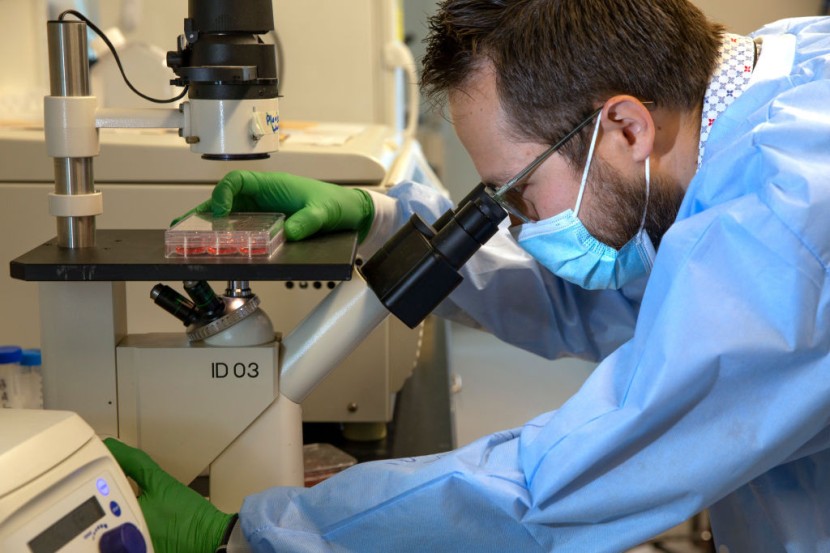
Researchers at Washington State University claim that a newly discovered virus that is related to the virus that causes COVID-19 has been found in a Russian bat and may be contagious to people.
A team of researchers at the Paul G. Allen School for Global Health discovered spike proteins from the bat virus, known as Khosta-2, can infect human cells and are resistant to both monoclonal antibodies and serum from individuals who have received the COVID-19 vaccination. Additionally, Khosta-2 has the ability to infect humans.
Virus Similar to COVID-19 Found in Russian Bats
The virus that causes COVID-19, SARS-CoV-2 and Khosta-2 are coronaviruses that belong to the sarbecovirus family. The discovery of Khosta-2 underscores the need for universal vaccinations to defend against this subclass of coronaviruses generally, rather than simply against known versions of SARS-CoV-2, according to Michael Letko, a virologist at WSU and the study's author for the publication of PLoS Pathogens.
Hundreds of sarbecoviruses have reportedly been found in recent years, mostly in Asian bats, although the majority are not able to infect human cells, according to researchers. In late 2020, the Khosta-1 and Khosta-2 viruses were found in Russian bats, and at first it seemed they posed no danger to people, as per Fox7 Austin.
Despite the fact that hundreds of sarbecoviruses, predominantly from Asian bats, have lately been discovered, most of them are unable to infect human cells. In late 2020, the Khosta-1 and Khosta-2 viruses were found in Russian bats, and at first it seemed they posed little harm to people, according to the experts.
Khosta-1 was shown to offer little risk to people, but Khosta-2 exhibited certain unsettling characteristics, according to the researchers. They discovered that, similar to SARS-CoV-2, Khosta-2 may infect cells via its spike protein by binding to a receptor protein known as angiotensin converting enzyme 2 (ACE2) that is present in all human cells.
The scientists then started investigating whether the novel virus is protected against by the current vaccinations. The researchers discovered that Khosta-2 was not neutralized by current immunizations using blood serum obtained from individuals who received the COVID-19 vaccine.
They also analyzed serum from individuals who had the Omicron variant infection, but the antibodies were likewise ineffective. According to Letko, the novel virus lacks a few of the genes thought to be important for pathogenesis in humans. However, there is a chance that Khosta-2 will recombine with another virus, such as SARS-CoV-2, according to Business Standard.
COVID-19 Like Virus is Vaccine Resistant
Khosta-1, a virus found in the same initial samples and closely related to Khosta, was the subject of additional research by Dr. Stephanie Seifert and her associates. According to tests, Khosta-2 was able to infect human cells in a manner that was remarkably similar to SARS-CoV-2.
The virus attaches to the ACE-2 entrance enzyme, which is located on the surface of human cells, by hooking onto a spike-like protein on its surface. Despite being able to do so, specialists found that SARS-CoV-2, which some scientists believe has evolved to become more contagious than measles, was more effective at doing so.
Studies looked at whether Covid vaccinations or medications could kill it if it ever jumped to humans (a process known as zoonosis). One Eli Lilly antibody drug was totally resistant to it. Khosta-2 appeared resistant to two doses of both the Moderna and Pfizer injections, according to laboratory study.
However, according to Seifert and colleagues, it is still plausible that COVID-19 immunity gained naturally or even through vaccinations will be able to combat the virus. The experiment's findings were released in PLoS Pathogens. The authors stated in their journal entry that the vast majority of the hundreds"of sarbecoviruses found are not capable of infecting people.
They added that their research shows they represent a threat to world health and highlights the urgent necessity for the creation of all-encompassing coronavirus vaccines. Given that SARS-CoV-2 was responsible for the largest worldwide pandemic in modern history, they used it as an example, Daily Mail reported.
Related Article: Gov. Ron DeSantis Pressured as Calls Grow To Investigate Him Over Misinformation To Fly Migrants to Martha's Vineyard
@YouTube
© 2026 HNGN, All rights reserved. Do not reproduce without permission.








